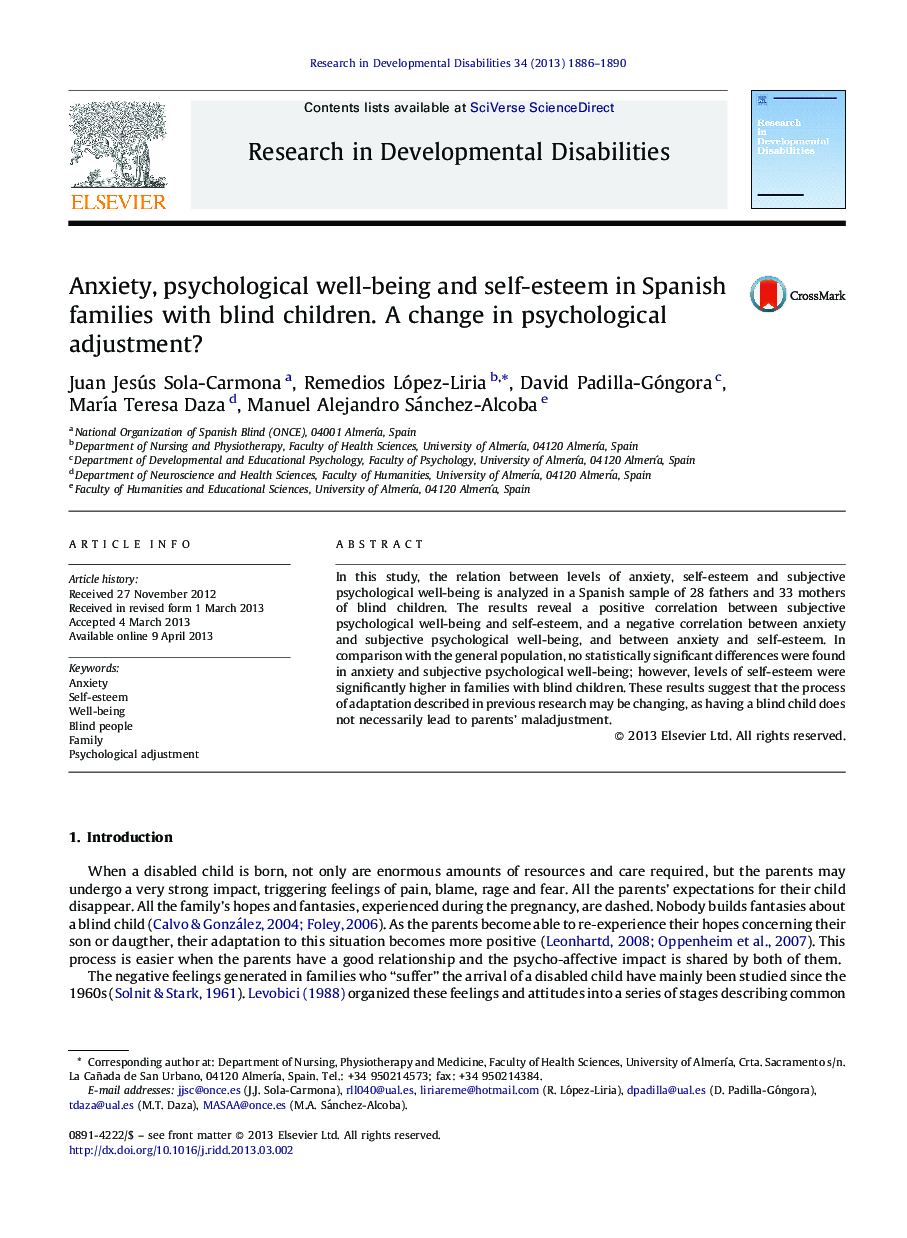| کد مقاله | کد نشریه | سال انتشار | مقاله انگلیسی | نسخه تمام متن |
|---|---|---|---|---|
| 371755 | 621940 | 2013 | 5 صفحه PDF | دانلود رایگان |

• Having a blind child does not necessarily lead to parents’ maladjustment.
• The results reveal a positive correlation between subjective psychological well-being and self-esteem.
• There is a negative correlation between anxiety and subjective psychological well-being, and between anxiety and self-esteem.
• The levels of self-esteem were significantly higher in families with blind children than the general population.
• These results suggest that the process of adaptation described in previous research may be changing.
In this study, the relation between levels of anxiety, self-esteem and subjective psychological well-being is analyzed in a Spanish sample of 28 fathers and 33 mothers of blind children. The results reveal a positive correlation between subjective psychological well-being and self-esteem, and a negative correlation between anxiety and subjective psychological well-being, and between anxiety and self-esteem. In comparison with the general population, no statistically significant differences were found in anxiety and subjective psychological well-being; however, levels of self-esteem were significantly higher in families with blind children. These results suggest that the process of adaptation described in previous research may be changing, as having a blind child does not necessarily lead to parents’ maladjustment.
Journal: Research in Developmental Disabilities - Volume 34, Issue 6, June 2013, Pages 1886–1890